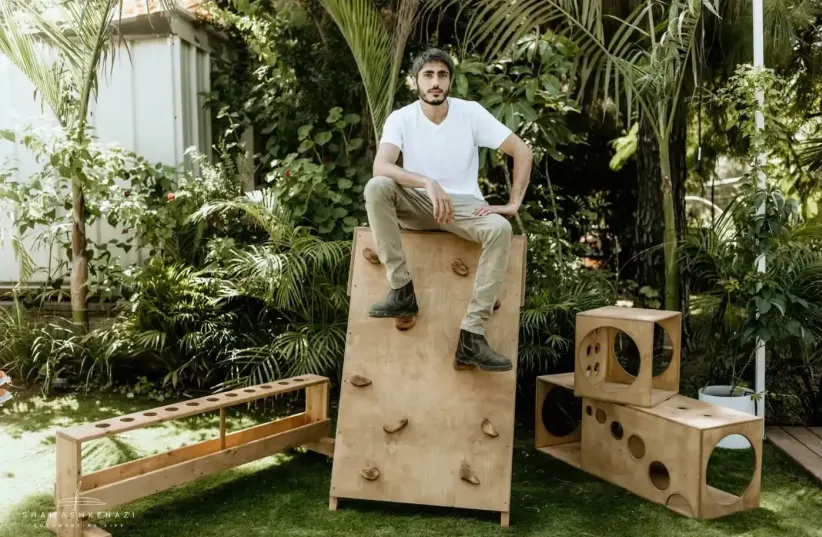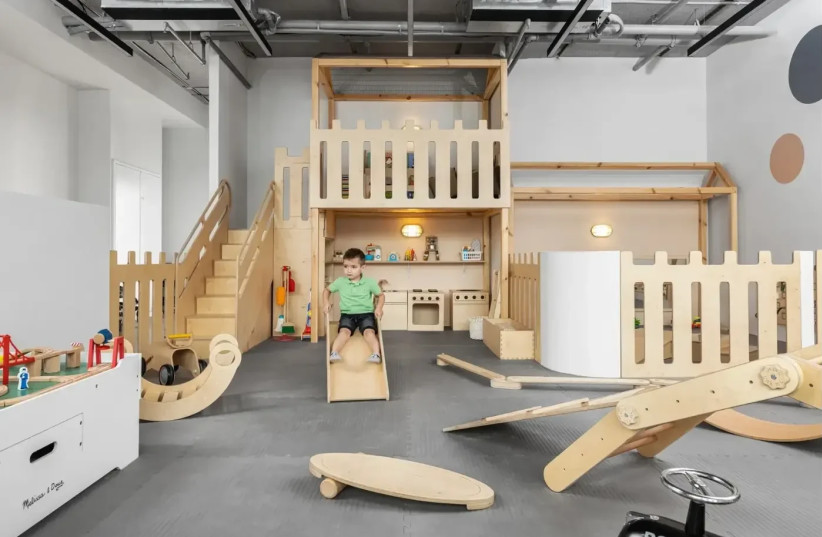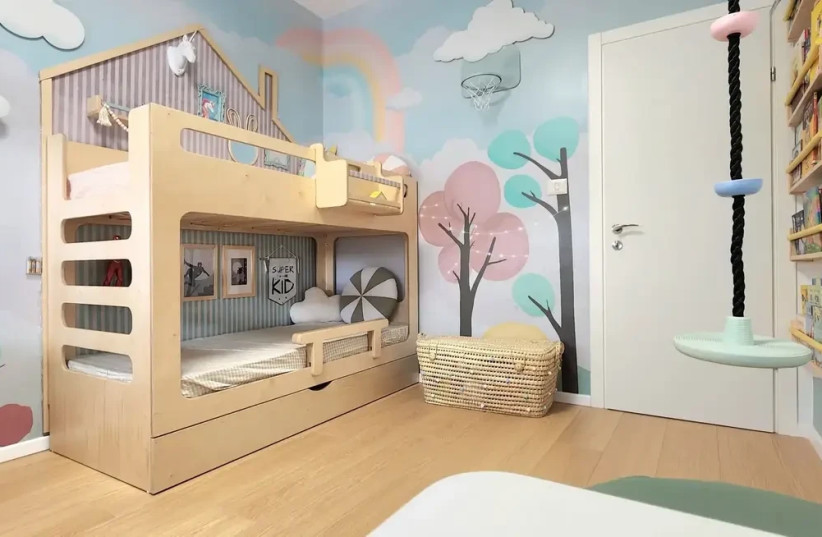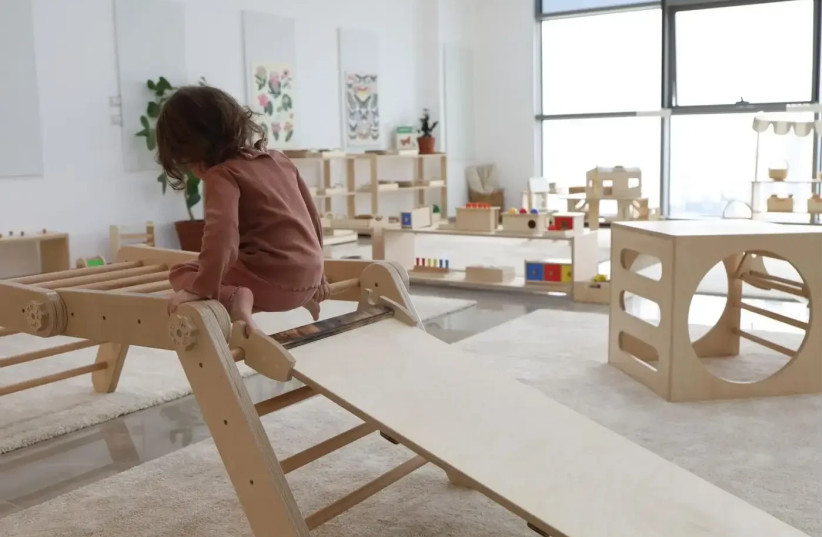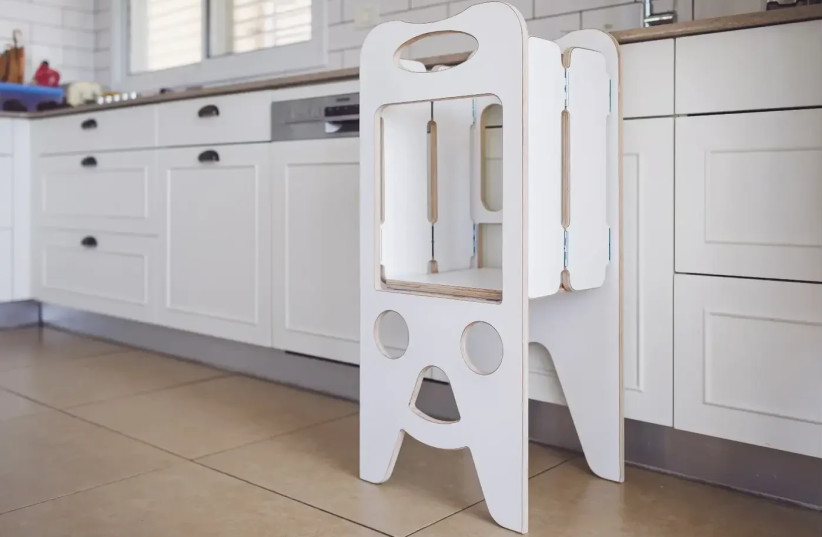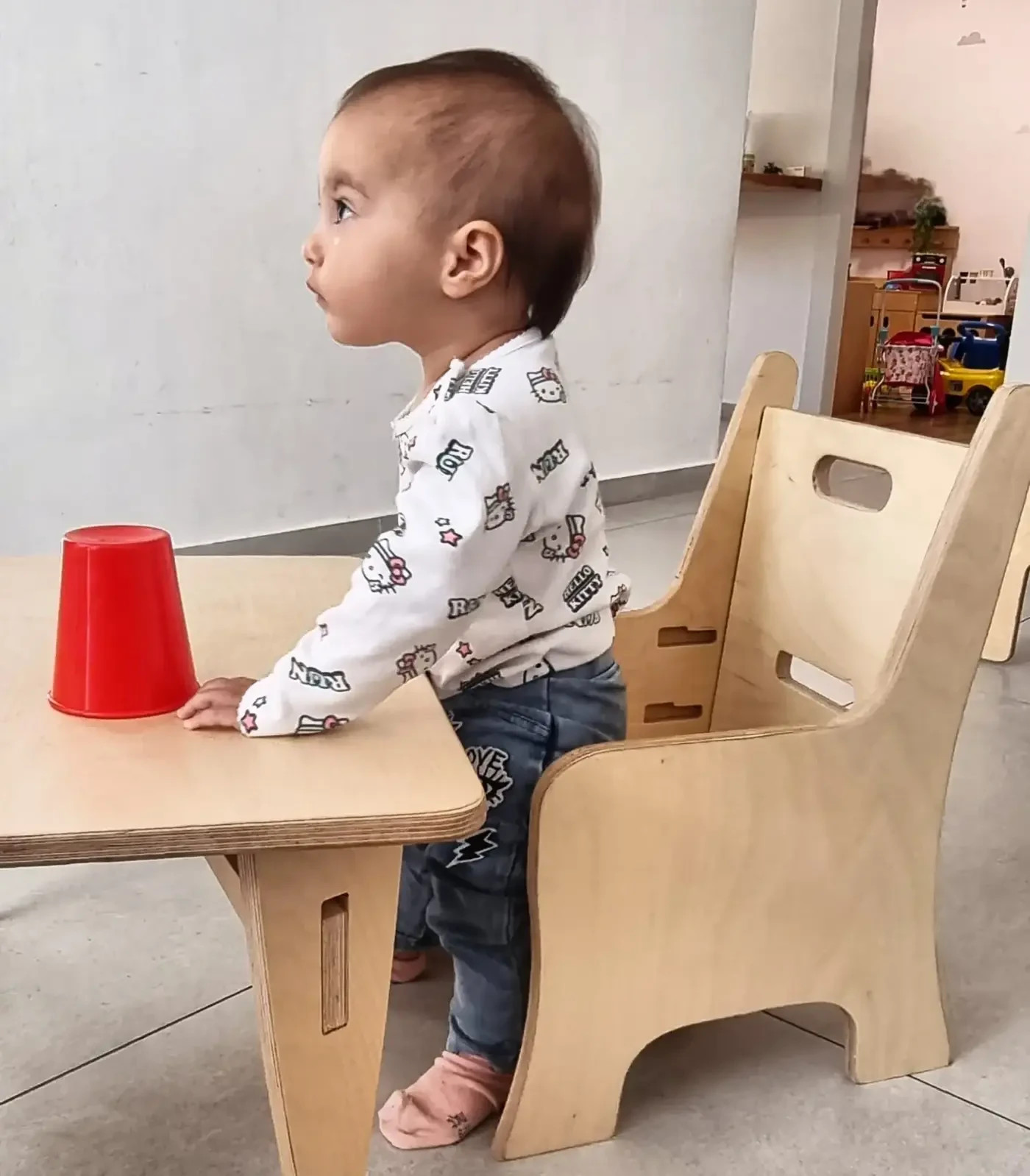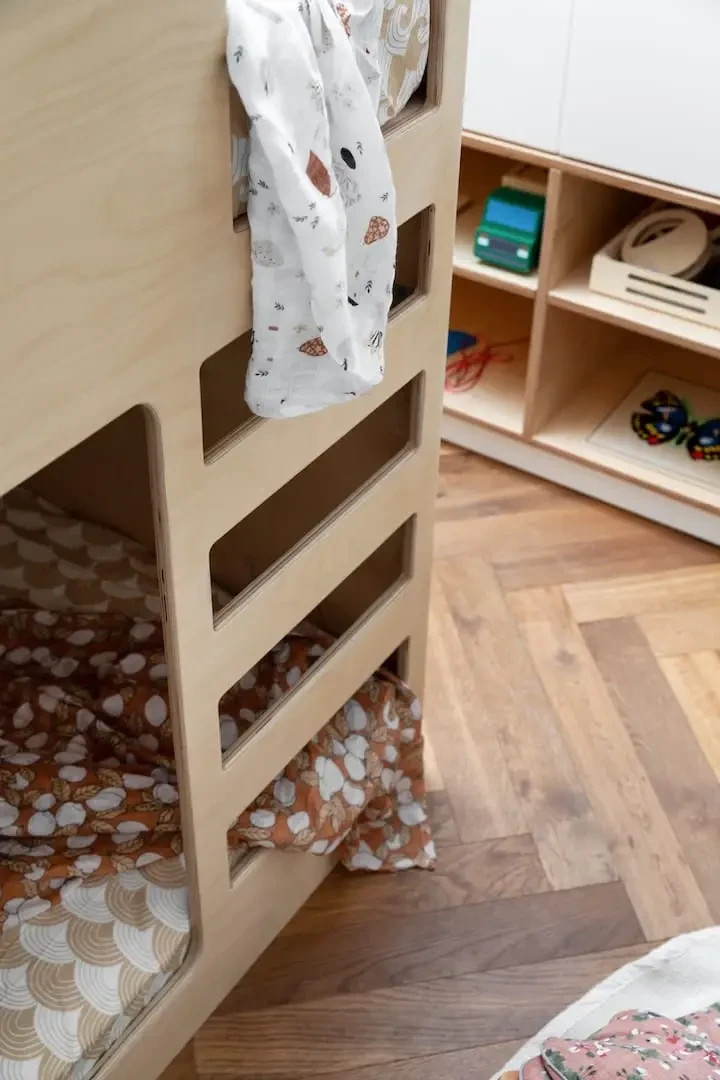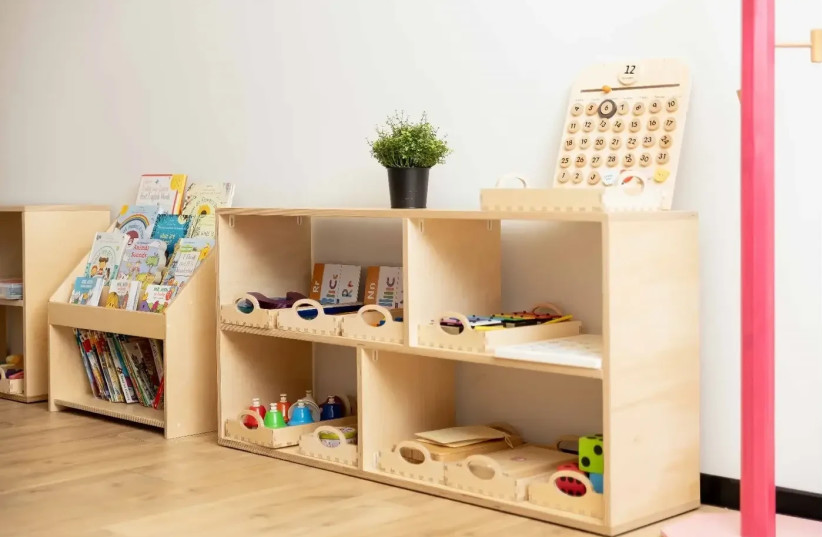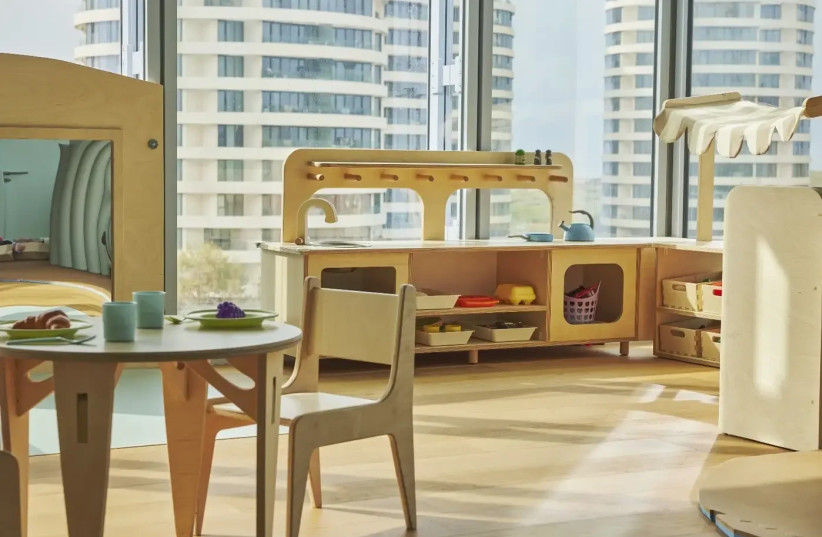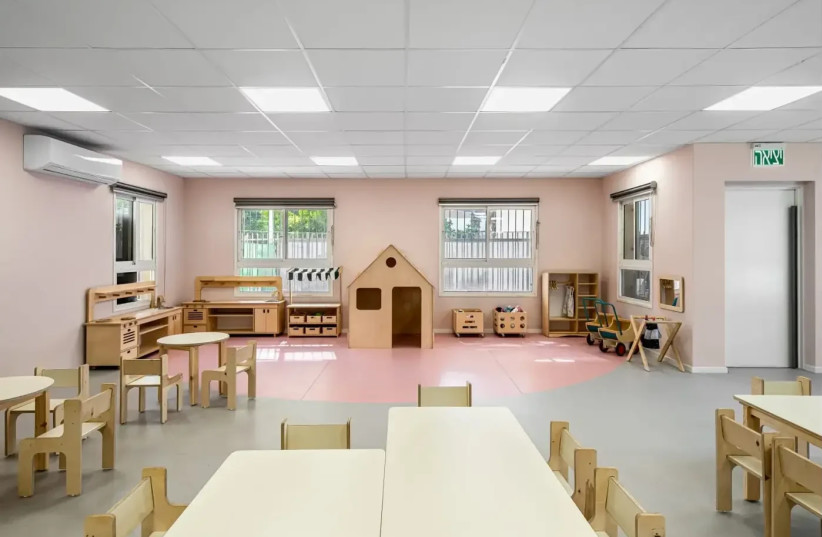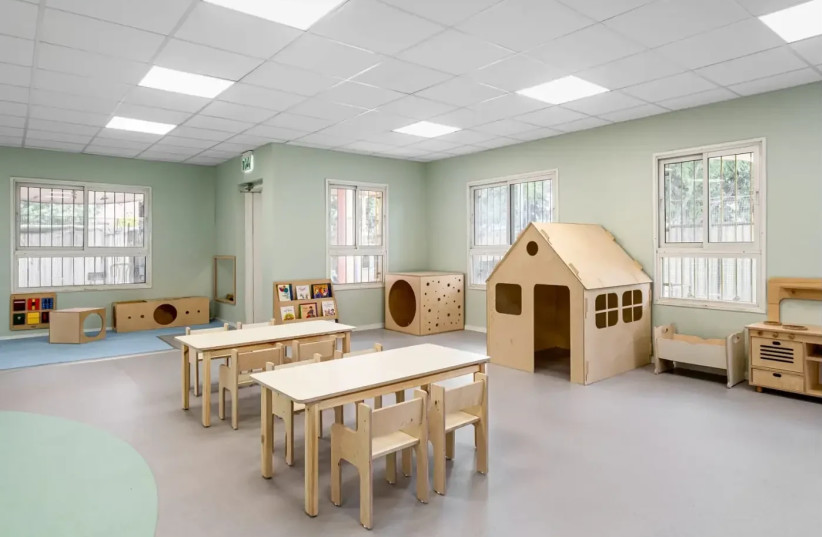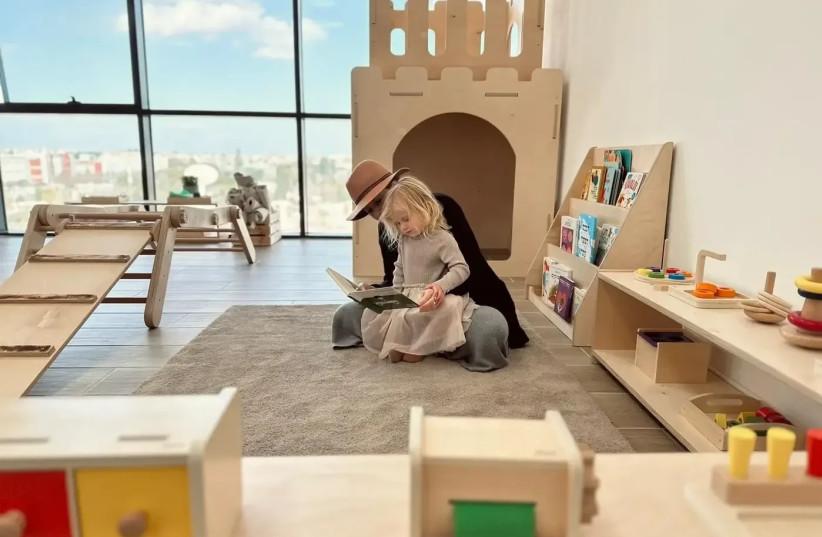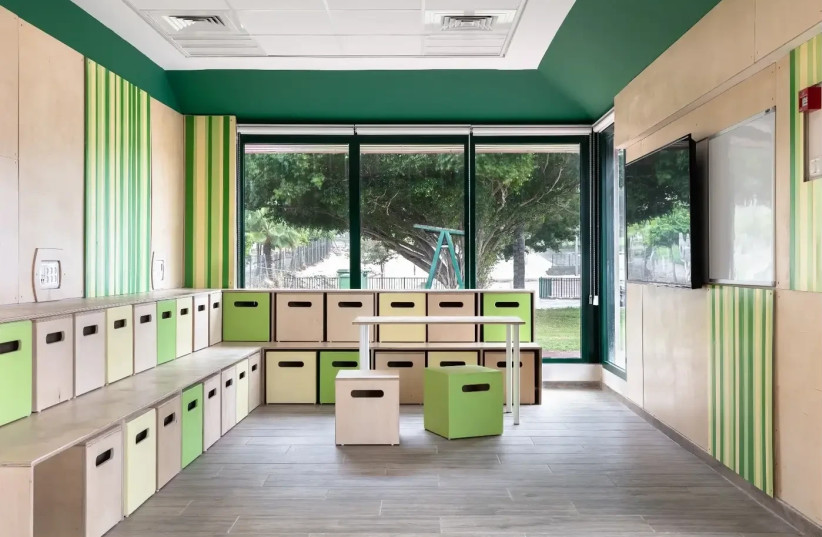It all began seven years ago in Jacob's backyard. After earning a degree in economics and working in office jobs, he realized it wasn't his place. He started learning carpentry and was the first to develop and create wooden furniture using the Montessori approach - a method of free learning developed in the 19th century by the Italian physician and educator Maria Montessori.
Requests started flowing in; parents, institutions, kindergartens, and architects sought furniture like this for themselves and their clients, and the rest is history. "That's how you meet an existing need," says Yakov Acheldiev, known as "Yasha," adding, "Today's playroom is not like it used to be. It's designed more calmly with facilities that allow children freedom. Less distractions and disturbances of color, and it's also entering the domestic space. More and more parents are creating play areas for their children inside the house, including climbing walls, balance beams, swings, and even beds and kitchens designed in the Montessori approach where games are spread at the child's eye level, accessible and encouraging imagination. Even the bed, according to this approach, is made at a precise height so that children can climb independently."
Freedom is the keyword.
"Yasha's Tree" brand has achieved success and is positioned as a key player in the field thanks to Yasha's ability and the team's capacity to invent new products ahead of everyone else, expand the offerings, and create the widest variety possible.
"We have a professional team, advanced equipment, a lot of knowledge and years of experience, personal relationships with customers, designers, and architects, private customers, kindergartens, councils, and institutions that come with ideas and needs, and we are here to fulfill all dreams. With each piece of furniture and item I manufacture, I try it out with my daughters. Every game and new accessory. From every customer, we learn and evolve. Many products on the website are products we created for customers and vice versa. There are cases where the customer is inspired by the designs on the website, and we make adjustments for them both in terms of design language and product composition."
On the "Yasha's Tree" website, you can delve into a whole world of furniture, games, accessories, order as is, or get ideas and order similar products tailored to the customer's needs. For example, you can order a play kitchen for children and temporarily purchase all the complementary accessories, starting from vegetables to kitchen utensils, all of very high quality. Besides play equipment, climbing structures, swings, the brand offers perfect and meticulously designed beds. All according to the Montessori approach encouraging independence, accessibility, and freedom. Alongside the beds are high-quality mattresses imported from Italy. All aimed at providing comprehensive solutions and professional and convenient service.
Today, the company is based in Holon in a space of about 300 square meters, including a carpentry workshop and warehouse, and has more than 10 loyal and talented employees who gave him support and allowed the company's activity to continue while he was serving in the reserves in Gaza.
He was the first to identify the need for Montessori furniture and has been leading the field to this day.
Foldable learning towers, Montessori beds for young children, developmental facilities, Pikler triangles, what does it mean?
A Pikler triangle is a multi-purpose climbing structure that is enjoyable and developmental. Named after the Hungarian pediatrician Dr. Emmi Pikler, known for her professional and comprehensive research on the behavior of low-status children wandering the streets without disturbance, she discovered that they were physically strong and suffered less from falls and injuries. Their physical control was higher, and oddly enough, children who received "adult management" seemed to weaken them physically, mentally, and emotionally. The Pikler triangle allows children to practice and develop gross motor skills, simulate outdoor challenges indoors, and create a developmental-friendly environment.
Foldable learning tower: A facility that allows a child to operate freely and at eye level with adults. Easily accessible and reach the kitchen counter. The structure is made of painted birch wood on a water-based basis, handmade, and folds in a way that allows it to be stored in a space-saving manner.
Best seller - adjustable table and chair: Adjustable table and chair for ages one to five. The chair adjusts to the child's heights, and the table's legs can be adjusted. It's a set bought at age one and used until age 5. The child can sit alone to eat independently without fear of falling or fear of height. They actually reach the floor with their feet and sit comfortably and accessibly facing the food. It reinforces security and a sense of independence and gives parents a lot of peace of mind.
More and more parents and designers are implementing the Montessori approach in the design of children's rooms at home and in kindergartens.
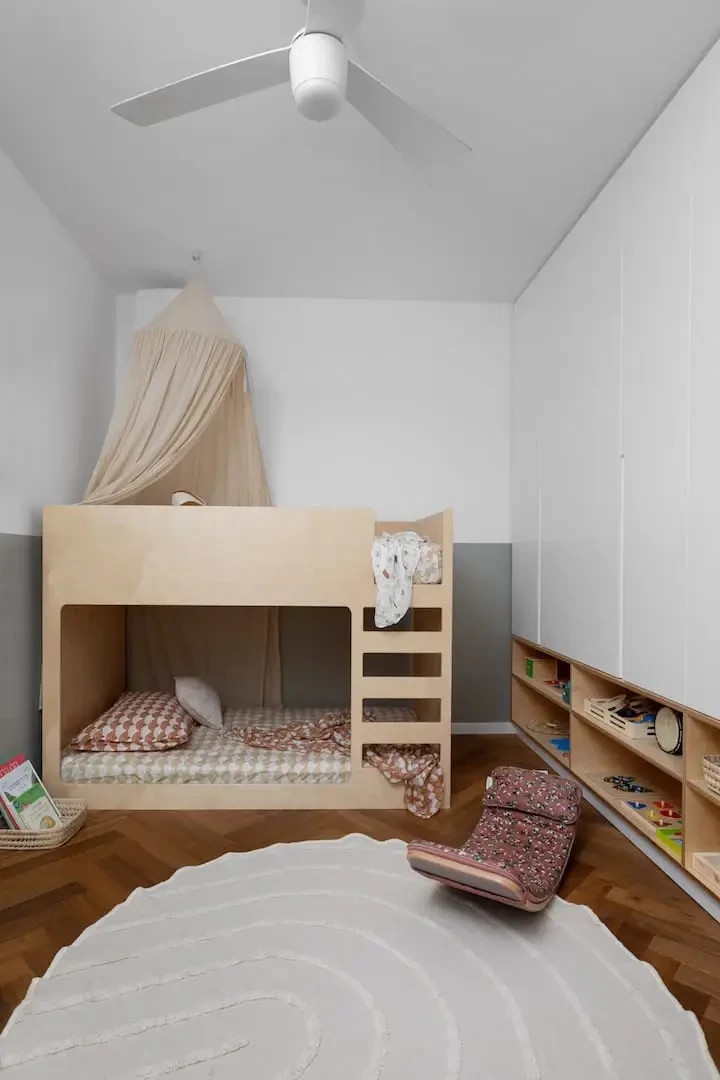
Sapir Levi Maori, a client, interior designer who implements the Montessori approach both as a designer with her clients and with her two young children she raises in the Montessori education approach, says: "As a designer and a mom, I strongly believe in the Montessori education approach, which among other things encourages independence, the child's ability to choose and decide, as well as communication at the child's eye level, physically and mentally. As a mom, I allow my children as much choice and independence as possible: full accessibility to their food, their clothes, and all they need on a daily basis. For example, a wall cabinet was planned in their bedroom, such that on its lower part, games and exercises are displayed, in its middle part and at their eye level, there is a drawer with several options for dressing, and in its upper part, the rest of the clothes are stored."
In the realm of children's interior design, fostering independence and accessibility is paramount.
One exemplary approach involves creating open shelves for games and exercises, arranged in a buffet-style manner within trays and open baskets. Games not currently in use on these open shelves will be stored in closed cabinets, adhering to the Montessori principle of "quiet storage." This storage solution, like all aspects of space planning and design, is crucial for ensuring accessibility.
The concept rejects the idea of stacking closed box games, instead presenting them as "exercises" to focus attention and maximize comfort for the child.
Another option is to incorporate mobile toy chests with wheels into the room design. These large play boxes allow for easy collection of favorite games and the freedom to move them around the house independently, facilitating easy cleanup and storage.
When designing children's rooms, I initiate a dialogue with the client, explaining the methodology's principles and what can be gleaned from it during the planning and design stages for various spaces in the home, particularly children's rooms. The organizing idea is accessibility and conditions for autonomy. The more present they are in the home, the more a child will grow to be independent, experiencing inner peace and tranquility.
In my studies of the method, I encountered the phrase "give the child normal conditions in extraordinary ways," which, for me, encapsulates the essence of tailored planning and design, without compromise, as we adults do. A child's room should be like a "hotel buffet," with choices laid out before them. The more organized and accessible the room is, the more peace and tranquility both the child and the toddler will experience independently.
Furniture for children's gardens and institutions - Jimbouri
"Any garden wishing to be Montessori, different from the usual, colorful, and cluttered," says Yasha. We embrace new playfulness, waiting rooms, and games. Jimbouri, colorful and busy, belongs to the past. Today's approach is more minimalist, utilizing natural materials and accessibility. I call it 'Natural Jimbouri.'"
A revolution. From a regular class to a specialized nature study class. In the project shown in the image, we transformed a regular class into a nature study class in the division. Ongoing studies take place in the field and in nature, necessitating the presence of a physical classroom, supporting accessibility, where students can meet for lectures and group work, including a library with professional materials. To accommodate all activities desired in the classroom, we planned smart and modular furniture that can adapt to specific activities quickly. Additionally, we designed a seating tribune in birch for lecture meetings. The tribune contains wooden cubes that can be removed and used as seats in group work. Alongside these, an open and spacious wooden library provides students with a variety of accessible study materials. We chose to cover the classroom walls with birch boards, combined with green elements, to give the class a complete and uniform appearance that sets it apart from standard classrooms. A project that illustrates our ability to fulfill dreams, according to customer needs, educational approach, and design language for all ages. All in harmony and in an approach that encourages learning, free imagination, and creativity. The essence of "Yasha's Tree."
